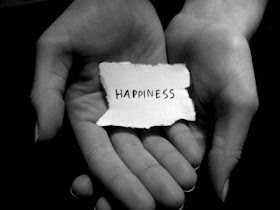
Recently I have dealt with situations that have instantly triggered the defensive part of me. While working on a project for school I faced less than glowing critiques of my work which engaged the part of me that wanted to bite back at this person's negative viewpoint. Instead of simply reacting though, I took a minute, cleared my head and thought about the situation objectively.
I have always been the type of person who just reacts, as many people do. I would get defensive and react without thinking about the actions I was taking. Seeing how this has affected my relationships and the particular situations where this has occurred, I realized how important it was to take that minute before reacting to the situation. While at points easier said than done, in a time when much communication is done electronically, I believe that many times it can be easier today to take a minute and think through what you are going to say. If that text or e-mail is not responded to within a minute, the world will not implode and chances are you may be able to respond in a much more level-headed way.
For me personally, taking this extra minute or so before reacting has been crucial. In the one event that I mentioned earlier, by taking time with my response I was able to draft a response in which I could articulate my opinions without attacking his. Also, I was able to feel confident about my response instead of worrying about damage control that would need to be done by responding in a defensive manner. At first the situation was something anger inducing and overall negative, but I was able to turn it around into a positive dialogue where all respectful opinions were allowed to be voiced.
Taking an extra minute can be applied to many situations, not just arguments. By taking an extra minute in the morning to gather your thoughts, you may leave the house with everything rather than rushing out and forgetting the one thing you needed for the day. At the end of the day, you can take a minute to reflect upon the day and how you are feeling. By giving yourself a moment to just calmly think and reflect, you can clear your mind and make better choices than by instantly reacting. Although time is a precious thing, slowing down and taking control of time can in the long run save the time that rushing into something erratically may waste.
I encourage you to take the extra minute. For me it has allowed me to avoid placing my foot in my mouth in many occasions and be more mindful of my words and actions.
Katie Infusino
Katie is a Bachelors level intern from DePaul at The Awakening Center. She co-leads the Tuesday night ANAD Support Group.



